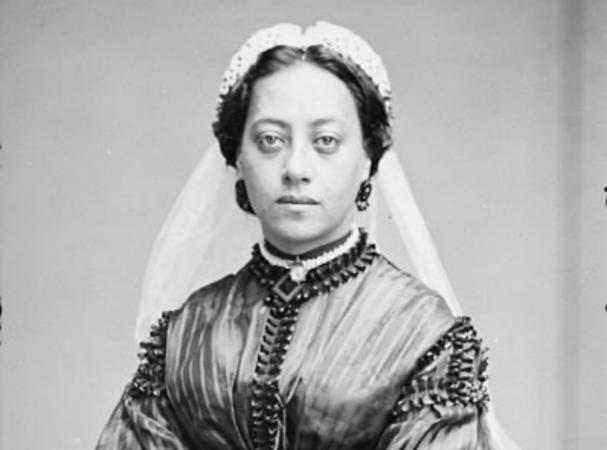It’s important that our historical Black figures are remembered and uplifted for the work they’ve done, even if they aren’t deemed household names. Many may be unaware of who Mary Ellen Pleasant is, but her story is both remarkable and admirable in African American history.
As told by CNBC, Mary Ellen Pleasant was a self-made Black entrepreneur who built a fortune that was used to aid abolitionist causes in the United States and help slaves escape to freedom via the Underground Railroad.
The New York Times reported that her legacy was compared to that of Harriet Tubman’s by civil rights activist and author W. E. B. Du Bois in his 1924 book titled “The Gift of Black Folk” – describing Pleasant as “quite a different kind of woman and yet strangely effective and influential.”
Pleasant was born in 1814 on a Georgia plantation and separated from her parents at a young age, sent off to work as a servant in Massachusetts. It was there that she learned to read, write and work in a shop.
She then moved to San Francisco in 1852 to work as a domestic servant and chef for wealthy businessmen. Knowing how dismissive wealthy, white men were of African American women, Pleasant took full advantage of an opportunity to eavesdrop and absorb valuable investing tips.
Earning roughly $500 a month, Pleasant invested a large portion of her salary and savings into real estate and other opportunities she would overhear in conversations, such as silver and gold mines. Additionally, she bought into various local businesses and by the 1860s she was known as the owner of a large chain of laundry businesses and boarding houses.
She later met a bank clerk named Thomas Bell who would help her pursue some of her investments which would eventually lead to a years-long business partnership that made both parties incredibly wealthy.
According to The New York Times, she avoided discrimination and questions by putting many of her investments under Bell’s name, who was white.
Together they bought shares of laundries, dairies, restaurants and even Wells Fargo Bank. Historians estimated their combined fortune to be over $30 million, a sum that today could equate to around $864 million.
Living as a wealthy African American woman in the 1800s, Pleasant had no interest in flaunting her wealth, but she indulged appropriately. She built a 30-room mansion in the heart of San Francisco worth close to $100,000 (about $2.4 million today), along with Bell and his family.
Her journey to wealth wasn’t without its challenges. When people found out Pleasant and Bell were living under one roof together, vicious rumors spread of her being his mistress and labeled her boarding houses as brothels also claiming she practiced Voodoo.
Pleasant wasn’t just a self-made millionaire, she was also widely recognized as a supporter of civil rights, supporting causes to end the practice of slavery throughout her career. She also worked on the Underground Railroad to lead slaves to freedom.
She used her fortune to provide financial assistance to former slaves and also found jobs and housing for those that escaped on the railroad. She continued to show her support by publicly addressing these issues, earning the name “mother of civil rights” in California.
Although she lived most of her life as a very well-off entrepreneur, Pleasant’s fortune did not last until the end of her lifetime. After her partner died, she lost much of her fortune and plunged into poverty until she passed in 1904.
Nonetheless, Mary Ellen Pleasant was still recognized as a famous figure in San Francisco and her legacy was even rewarded with an official Mary Ellen Pleasant Day and park where she’s praised for her accomplishments.
















